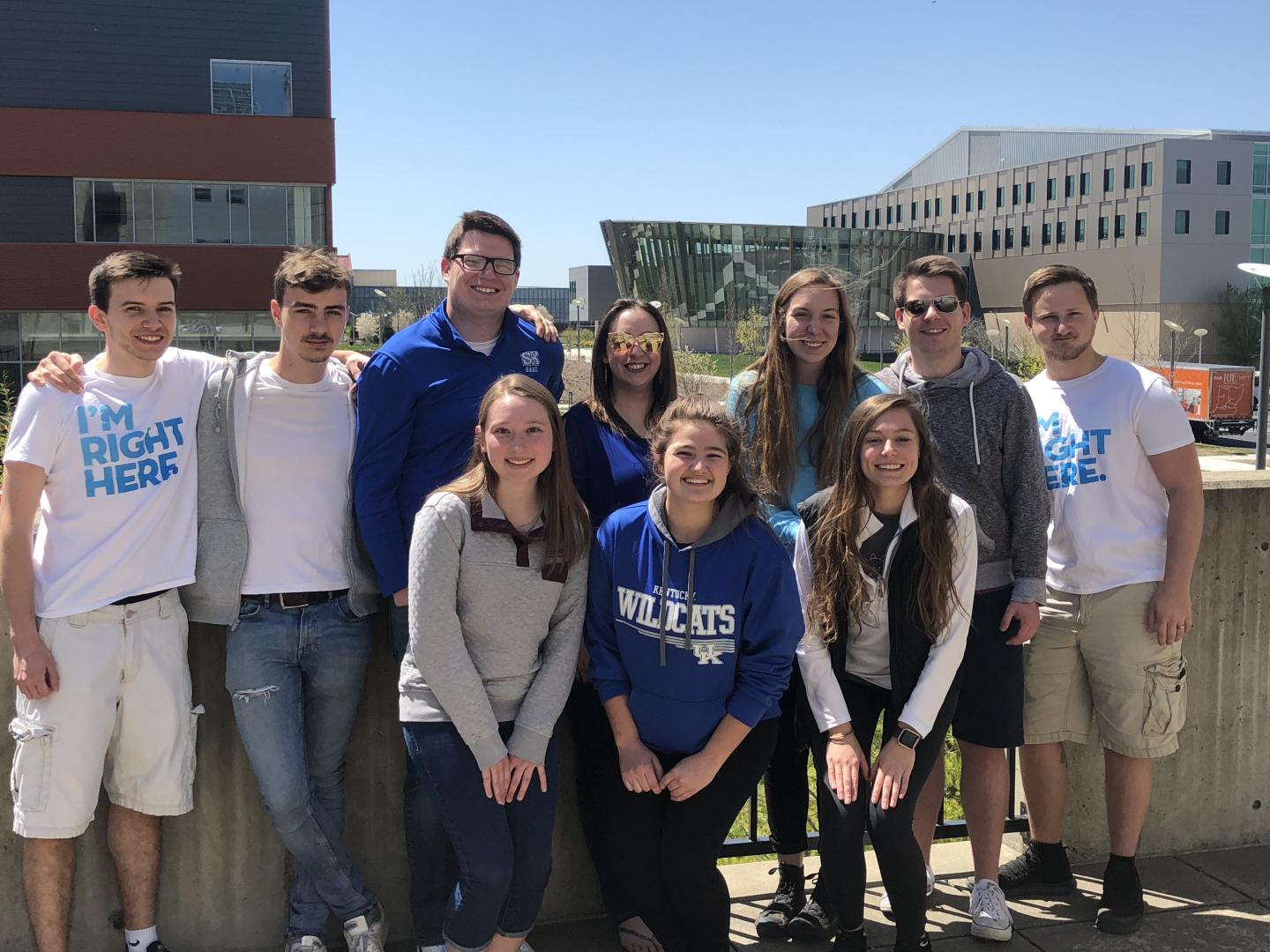KBRIN adding electron microscopy resource for early-stage researchers

Credit: Amber Onorato
LOUISVILLE, Ky. – For nearly two decades, a program administered at the University of Louisville has been helping scientists at institutions throughout the state get their foot in the door of biomedical research.
A five-year, $18.2 million grant from the National Institutes of Health (NIH) awarded earlier this year will continue and enhance the work of the Kentucky Biomedical Research Infrastructure Network (KBRIN), the state’s Institutional Development Award (IDeA). The IDeA program builds research capacities in states with historically low levels of NIH funding by supporting basic, clinical and translational research as well as faculty development and infrastructure improvements. Kentucky is one of 23 states eligible for IDeA funding.
“Our goal is to enhance training in biomedical research for faculty, postdoctoral fellows and graduate and undergraduate students throughout the state,” said Nigel Cooper, Ph.D., director of KBRIN, based at UofL. “Since 2001, federal funding through the Institutional Development Award program has allowed us to work with other higher education institutions in Kentucky to build a network of resources and education.”
KBRIN includes partner institutions who share biomedical research expertise, data processing and infrastructure with early-stage researchers at partner and outreach institutions, including collaborative networks among scientists, funding workshops and access to equipment that may not be available at the researchers’ home institutions.
The new funding allows KBRIN to add an electron microscopy core, offering researchers access to electron microscopes at UofL, the University of Kentucky and Western Kentucky University. To launch this resource, KBRIN has issued a call for proposals for electron microscopy pilot projects, enabling students and researchers to prepare samples and use the electron microscopes. Submissions are due July 15.
Through IDeA, KBRIN also provides funding for research projects to assist early-stage researchers in their work. In addition to advancing research itself, the projects support increased student training and career development, including summer programs and mentored research for undergraduate students.
Amber Onorato, Ph.D., assistant professor of chemistry at Northern Kentucky University, recently received funding from KBRIN to support research that involves the synthesis of novel anti-inflammatory molecules. The KBRIN funds will allow Onorato and a group of her students to further advance the research project and work more closely with a collaborator at the University of Cincinnati to learn biological techniques.
“The funding allows me to spend more time with the students in the lab working on the project and to write grants and publications,” Onorato said. “It also allows me to pay the students who work with me over the summer, which gets more of my students in the lab. The ability to do this research in the field has made them more attractive candidates for professional schools as well as for their future careers.”
In the process of securing IDeA funding through KBRIN, the researchers also improve their potential for future direct NIH funding.
“We provide the infrastructure that allows newer researchers to ‘get in the game,’ but we also provide training for those researchers in the form of feedback on the grant proposals they submit to us for funding. This feedback prepares them to compete for NIH funding,” said Martha Bickford, Ph.D., associate program director of KBRIN.
Justin Yates, Ph.D., assistant professor of psychology at Northern Kentucky University, is an early-stage biomedical investigator who recently obtained funding from the NIH after working with KBRIN over the past four years. He studies the neuro-behavioral mechanisms leading to addiction.
“Being able to conduct research with funding through KBRIN has made me competitive. It enabled me to have my research published, to pay for an undergraduate student to help with the research and to recruit more students,” Yates said. “When you are applying for an R15 (grant from the NIH), an important aspect is training undergraduate students. By showing I could do that, it helped my application score.”
Robert Keynton, Ph.D., interim executive vice president for research and innovation at UofL, said the program is an important resource for developing future biomedical researchers in Kentucky.
“This project is an excellent example of the value of a multidisciplinary and multi-institutional program at building research infrastructure and capacity across the Commonwealth of Kentucky, which testifies as to why this is the longest, continuously funded NIH project at the University of Louisville,” Keynton said.
###
Since 2001, KBRIN has been funded continuously through IDeA, and has received more than $77 million in federal funding. Partner schools include the University of Kentucky, Western Kentucky University, Eastern Kentucky University, Northern Kentucky University, Murray State University, Morehead State University and Centre College, but the network is available to any college or university in Kentucky.
UofL will host the Southeast Regional IDeA Conference Nov. 6-8 in Louisville. In addition to scientific talks and poster presentations, the conference agenda includes workshops to introduce the new electron microscopy core and other facilities, as well as training in specific skills, such as bioinformatics and grant writing.
#WeAreUofL
Media Contact
Betty Coffman
[email protected]
Original Source
http://www.




